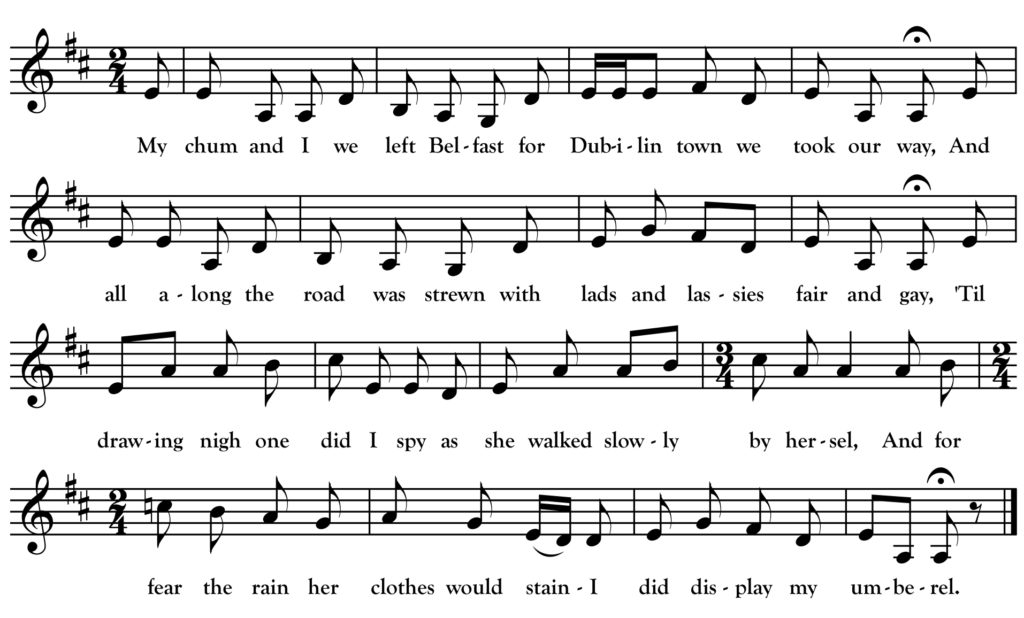Hiring Time

My chum and I we left Belfast for Dubilin town we took our way,
And all along the road was strewn with lads and lassies fair and gay,
‘Til drawing nigh one did I spy as she walked slowly by hersel,
And for fear the rain her clothes would stain I did display my umberel.
“Where are you going my pretty fair maid how far do you intend to stray?”
“To Antrim’s town sir I am bound for this they say is hiring day,
The clouds they do look something wet although the morning did look fine,
I fear my love” she then did say, “we won’t be in for hiring time.”
“O cheer your heart, my pretty maid for by and by the rain will pass,
And don’t be sad when with a lad, a roving baker from Belfast,
Then if you will accept a drink of whiskey, brandy, ale or wine,
We’ll have a drink and then be there to Antrim’s town by hiring time.”
She gave consent and in we went to an alehouse that stood by the way,
Glass after glass around did pass and we both forgot it was hiring day,
The clock struck three she smiled at me saying “Roving baker the fault is thine,
For the day’s far spent, night’s coming on besides I’m late for hiring time.”
We have another song this month from the wonderful repertoire of Charles Finnemore of Bridgewater, Maine as recorded by Helen Hartness Flanders in the 1940s. I have found versions of “The Hiring Time” (aka “The Hiring Day” or “The Strabane Hiring Fair”) sung by Eddie Butcher of Co. Derry, Michael Gallagher and John Maguire of Co. Fermanagh and Dick Flynn of Co. Wexford (also Jimmy Grant). It seems to have been a well-travelled song in Ireland. In Scotland, it was “The Feeing Time” and versions show up printed on broadsides there as early as the 1840s.
Finnemore’s version leaves off the ending typically sung in Ireland where the couple gets married in the morning and lives happily ever after. Finnemore also sang the song twice for the Flanders collection and did a different second verse each time. His drifting second verse split well into two verses with some help from one of the Scottish broadsides I found online through the National Library of Scotland so this is what I have printed above. To hear Finnemore’s varying versions, visit the Flanders Ballad Collection on archive.org.
The pattern of attending seasonal hiring fairs in Ireland and Scotland persisted in new forms in Maine and other north woods communities where lumber companies would send out agents, (“preachers of the gospel” one Michigan song calls them) each fall to hire enough men for their crew.


